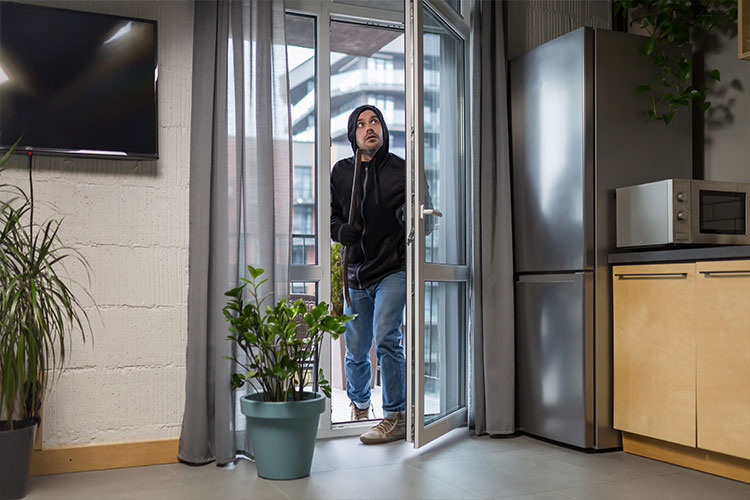Personal Safety Tips for Students
Students can take simple precautions that can keep them safe. Here are some quick tips:
- Stay aware: Always know who is around you. Check your surroundings when walking to and from your accommodation.
- Keep your phone ready: A charged phone can be your lifeline. Save emergency numbers and a few close contacts.
- Trust your gut: Don’t hesitate to step away or ask for help if something feels off.
- Let someone know: If you’re heading out late or into an unfamiliar area, text a friend or family member.
These simple habits can help you feel more secure every day.
How to Protect Personal Belongings
Protecting your stuff is as important as keeping yourself safe.
We always recommend:
- Lock up: Always lock your door when you leave, even if it’s just for a few minutes.
- Hide your valuables: Keep essential items like laptops, wallets, and gadgets out of sight. Consider using a small safe or a locked drawer.
- Use bags wisely: When you’re out, keep your bag close to your body and fasten zippers.
- Stay organised: A clutter-free space means fewer opportunities for thieves to grab something quickly.
Taking these actions can save you from the stress of losing essential possessions.
Securing Windows and Doors
Sometimes, it’s the basics that make the most significant difference. We always stress the importance of:
- Double-checking locks: Always secure windows and doors. A second look before bed can give you extra peace of mind.
- Simple fixes: Replace any broken or loose locks immediately. Minor repairs now can stop significant issues later.
- Extra security: Consider simple additions like door chains or window locks if you feel it’s needed.
This stops unwanted guests and adds a layer of confidence in your living space.
Safety Tips for Students Living in Shared Accommodation
Sharing your space means sharing responsibilities:
- Set clear rules: Talk openly with your housemates about locking doors and not letting strangers in.
- Share emergency contacts: Make sure everyone has the local emergency numbers and a plan for unexpected events.
- Regular checks: A quick chat about security concerns can help everyone stay alert.
Working together in a shared home makes a huge difference in staying safe.
Emergency Preparedness for Students
Emergencies happen when you least expect them.
Being ready is key:
- Keep a plan: Write down significant phone numbers and know your closest safe spot.
- Prepare a kit: Include essentials like a flashlight, some cash, and copies of important documents.
- Practice a routine: Talk with your housemates about what to do if something goes wrong.
These steps can make you feel ready and less stressed in an emergency.
Fire Safety in Student Accommodation
Fire risks are real, and a little care can prevent a disaster:
- Test alarms: Regularly check that smoke alarms work. A simple monthly test can make all the difference.
- Clear the way: Don’t block fire exits or clutter spaces that could slow your escape.
- Know your tools: Find out where fire extinguishers and blankets are kept, and ensure you know how to use them.
- Watch your plugs: Overloading sockets can be a fire risk. Keep an eye on your electrical items.
These practical tips can help you react quickly if a fire occurs.
Emergency Exit Plans and Evacuation Procedures
You should always know how to get out quickly:
- Map it out: Identify all possible exits from your building, including windows if needed.
- Set a meeting point: Decide a safe spot outside where you and your housemates can gather.
- Practice your route: Run through your exit plan a few times so it feels natural in an emergency.
How to Deal with a Security Incident (e.g., break-in or theft)
If something happens, the key is to stay calm and act quickly:
- Report it immediately: Contact your local police or the campus security team. Fast action helps catch culprits and prevent further incidents.
- Inform others: Let your housemates and accommodation manager know what happened.
- Please write it down: Record what was taken or any details that might help the investigation.
- Review your safety: After an incident, check your locks and security measures. Sometimes, a small change can prevent a repeat event.
Handling a security incident well means you can return to feeling safe faster.
We aim to help you create a safer living environment by focusing on clear steps and practical advice. Every small act adds up to a safer home, and by following these tips, you protect your belongings and your peace of mind. Remember, Student Accommodation Security is something we all share responsibility for.

